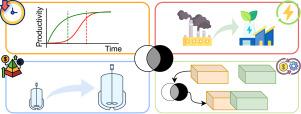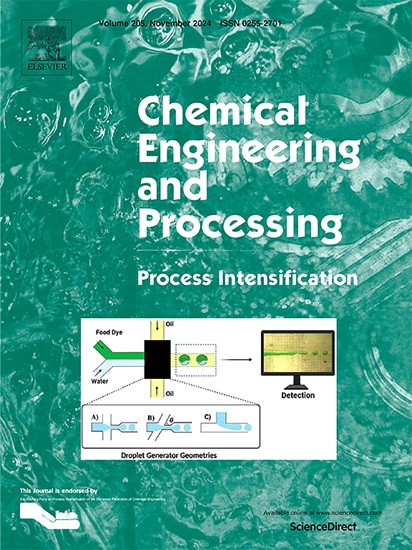Hybrid modelling approaches in process intensification: A thorough review
IF 3.9
3区 工程技术
Q3 ENERGY & FUELS
Chemical Engineering and Processing - Process Intensification
Pub Date : 2025-08-14
DOI:10.1016/j.cep.2025.110496
引用次数: 0
Abstract
Hybrid modelling has emerged as a powerful approach in process intensification, integrating first-principles models with data-driven models to optimise industrial processes. This review provides a comprehensive analysis of the application of hybrid modelling in process intensification, examining its role in enhancing efficiency, sustainability, and adaptability in chemical and bioprocess industries. The paper discusses various hybrid modelling strategies, including parallel, serial, nested architectures and physics-informed machine learning models, demonstrating their effectiveness in addressing complex engineering challenges. The applications of hybrid modelling are reviewed concerning the four key subgroups of PI: time, energy, structure, and synergy, showcasing their impact in reducing process duration, optimising energy use, integrating unit operations, and enhancing system design. By exploiting hybrid modelling techniques, industries can overcome data limitations, improve predictive accuracy, and accelerate the development of next-generation processes.

过程强化中的混合建模方法:全面回顾
混合建模已经成为过程强化的一种强大方法,将第一原理模型与数据驱动模型集成在一起,以优化工业过程。本文综述了混合模型在过程强化中的应用,研究了它在提高化学和生物过程工业的效率、可持续性和适应性方面的作用。本文讨论了各种混合建模策略,包括并行、串行、嵌套架构和物理信息机器学习模型,展示了它们在解决复杂工程挑战方面的有效性。本文回顾了混合建模的应用,涉及PI的四个关键子组:时间、能量、结构和协同作用,展示了它们在减少过程持续时间、优化能源使用、集成单元操作和增强系统设计方面的影响。通过利用混合建模技术,行业可以克服数据限制,提高预测准确性,并加速下一代流程的开发。
本文章由计算机程序翻译,如有差异,请以英文原文为准。
求助全文
约1分钟内获得全文
求助全文
来源期刊
CiteScore
7.80
自引率
9.30%
发文量
408
审稿时长
49 days
期刊介绍:
Chemical Engineering and Processing: Process Intensification is intended for practicing researchers in industry and academia, working in the field of Process Engineering and related to the subject of Process Intensification.Articles published in the Journal demonstrate how novel discoveries, developments and theories in the field of Process Engineering and in particular Process Intensification may be used for analysis and design of innovative equipment and processing methods with substantially improved sustainability, efficiency and environmental performance.

 求助内容:
求助内容: 应助结果提醒方式:
应助结果提醒方式:


